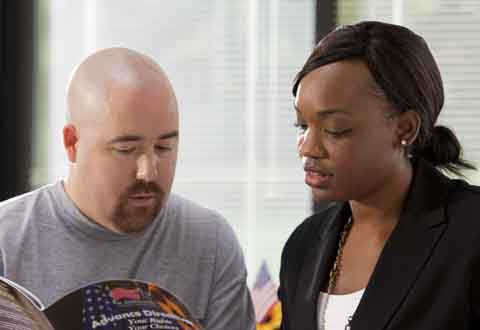Center for Health Equity Research and Promotion
CHERP Research and Accomplishments

Peer mentoring appears to be an excellent way to enhance self-management
Veterans Paying it Forward as Peer Mentors
About 25% of African Americans aged 65 – 74 have Type 2 diabetes, with higher rates of complications and less success with glucose control than non-Hispanic whites in the U.S. CHERP’s Judith Long, MD, has led two pilot studies that demonstrated that African American Veterans with hard-to-control diabetes matched with peer mentors made significant gains in keeping their blood sugar in check. She has now been awarded VA HSR&D funding to develop an intervention that includes transitioning successful mentored Veterans into the role of mentor, which will help others and could boost their motivation to maintain their own health improvement.
“Peer mentoring appears to be an excellent way to enhance self-management for this group of patients,” says Dr. Long. “Among other reasons for the intervention’s success, we believe there was a strong culture of camaraderie among the Veterans who took part in the studies.” She says social support is a critical factor in helping patients to manage chronic illness, but friends and family are often not able to fill the role.
Dr. Long, a primary care physician at the Philadelphia VA Medical Center, is also Co-Director of the VISN4 Center for the Evaluation of PACT (CEPACT). Her pilot study in the PVAMC PACT showed the effectiveness of having a diabetes educator implement the program, train the mentors, and have the mentees become mentors. “Our aim is to create evidence based, low-cost, easy-to-implement peer-mentoring programs that can sustainably support VA PACT efforts,” says Dr. Long. Supporting health related behavior change is difficult, frequently costly, and time intensive. As we move toward patient centered care with patient aligned care teams (PACT) it is essential that we find low cost, culturally competent ways to assist our patients outside of the clinical encounter. Relying on the inherent strengths of the Veteran community, peer mentoring shows potential as a means to improve outcomes in patients with diabetes. Determining how best to create sustainable peer-mentoring models will create a new powerful tool for the VA with the potential to improve chronic disease outcomes and demonstrate VA leadership in creating models that can be exported to other health care settings.
Long JA, Jahnle EC, Richardson DM, Loewenstein G, Volpp KG.
Peer mentoring and financial incentives to improve glucose control in African American Veterans: a randomized trial. Annals of Internal Medicine. 2012 Mar 20; 156:(6):416-24.



















